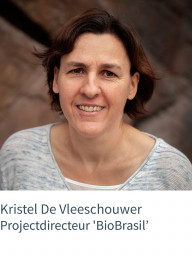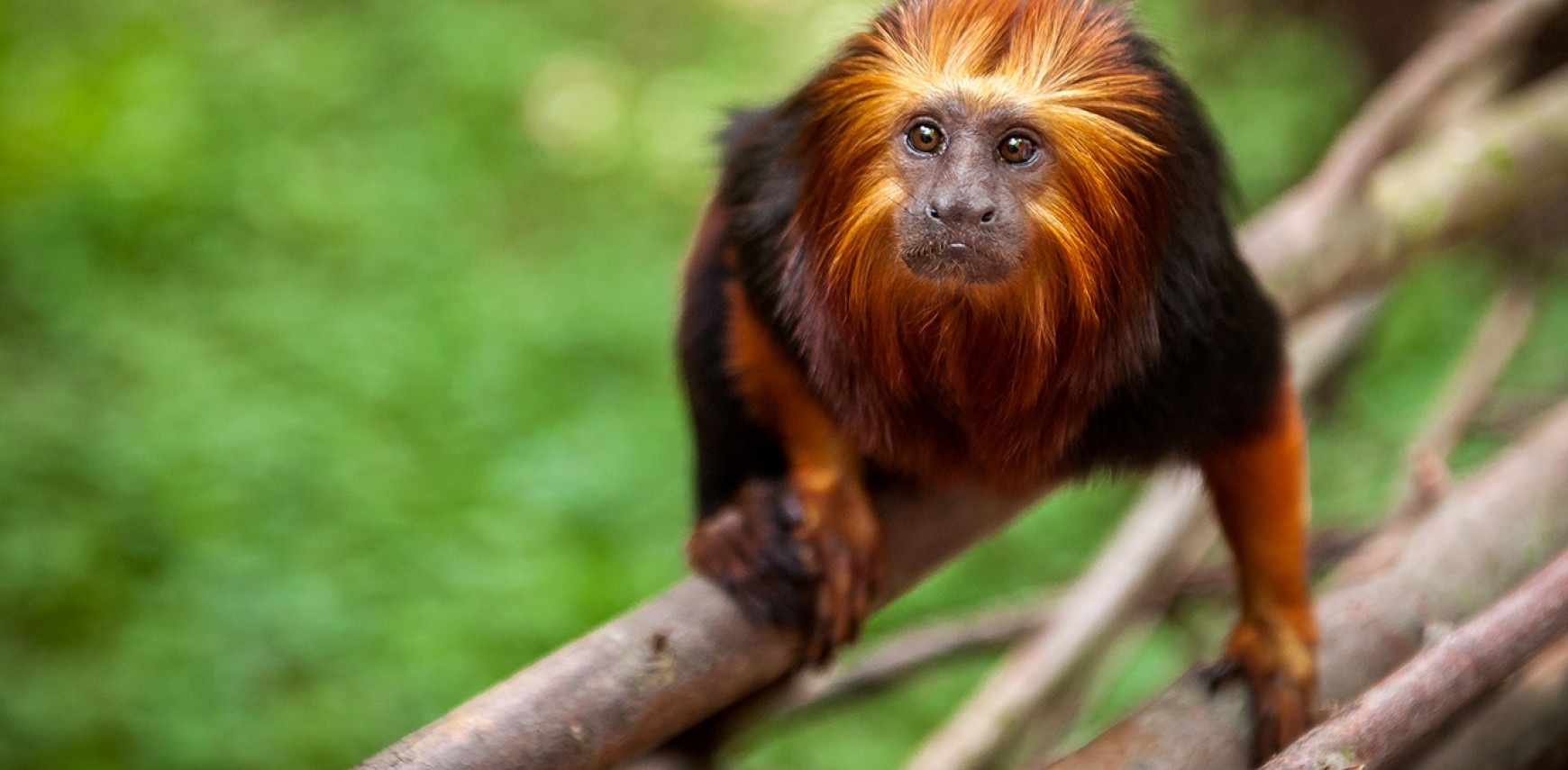BioBrasil
Planckendael ZOO is testing a device for collecting Golden-headed lion tamarin hairs without having to catch the animals themselves. The hope is that this device can be used in Brazil at a later date. We have in fact been operating a research station, called BioBrasil, in that country since 2002. Hitherto we had to capture the monkeys briefly to collect hair samples. We extract DNA from the samples for analysis, which is needed for mapping how the monkeys are genetically adapted to their environment. Various troops have become isolated as a result of the felling of the Atlantic coast rain forest. Important genes can no longer be exchanged, which is leading to a pronounced reduction in the genetic diversity of the monkeys and could eventually lead to extinction. BioBrasil though does much more, apart from studying the monkeys and their ecology, the project team works with local communities to improve awareness of environmental issues and the development of sustainable forms of land management that reconcile the chances of survival of the Golden-headed lion tamarins with the economic interests of the local population.
HOW EXACTLY DOES THE RESEARCH WORK?

The BioBrasil project has been in operation in the Atlantic rain forest of South Bahia (Brazil) since 2002. As the keeper of the international stud book we manage the world’s population of these creatures from our base in Antwerp. We would nonetheless like to play a greater role in protecting the species in the wild. The disappearance and fragmentation of their habitat, among other things as a result of deforestation, means that the continued existence of the Golden-headed lion tamarins is under threat. Their disappearance would not only be a catastrophe for the species itself but also for this green lung, as these monkeys scatter the seeds of more than 20 difference tree sorts throughout the forest. In doing so they help to keep it alive.
We want the BioBrasil research station to help us play a greater role in protecting the Golden-headed lion tamarin in the wild
We run a research programme in close cooperation with some of Brazil’s universities and conservationists. In this way BioBrasil wants to gain a greater understanding of the factors that impact the survival and breeding of Golden-headed lion tamarins in the fragmented forests in the agricultural areas. By closely observing a number of family groups year after year, we are able to collect useful information including the answers to questions such as, what trees and plants do the monkeys need to survive; how large are the family groups; how do they behave in the forest, where do they cause problems for human beings and how do human activities cause problems for them?
A research programme conducted in association with several Brazilian universities and conservationists aims at gaining greater understanding of the factors that affect the survival and breeding of the monkeys
HOW DOES THE RESEARCH MAKE A DIFFERENCE?
By using the information acquired from our observations, we are able to develop an effective plan of action to protect the Golden-headed lion tamarin and to secure their long-term survival. One approach could for example be to use our new knowledge to plant new bits of forest using those trees that the Golden-headed lion tamarin prefers for sleep or as a source of food.
The newly acquired knowledge is converted into a plan of action to plant new bits of forest using those trees that the Golden-headed lion tamarin prefers for sleep or as a source of food.
To secure the long-term survival of the species cooperation with local communities is crucial, because most of the animals live on private property. For this reason we work chiefly with the promotion of sustainable forms of land management that can reconcile the chances of survival of the wild populations of Golden-headed lion tamarin with the economic interests of the local population. To do this we quite literally work on the land of private landowners. By being there every day and working, as it were, in their back gardens, and by winning their support for our land-management recommendations, we are able to establish a natural and good relationship with them.
Every day we work on the land of private landowners. To get them to adopt our recommendations for land management, we have to make them enthusiastic
In this way we ensure that there is a return for the local population so that they accept and welcome our research in their community. For example we have set up a school for children with learning difficulties. The children receive extra lessons in reading and writing. Once a week they also get lessons about environmental awareness so that they are aware of ecological problems. Apart from that we offer farmers workshops on subjects such as organic farming and techniques that they can use on their land to provide sustenance without endangering the environment and the Golden-headed lion tamarin.
We have set up a school for children with learning difficulties and also give them lessons on environmental awareness and ecology. Workshops for farmers pass on techniques that they can use in their fields without harming the environment or the Golden-headed lion tamarin

